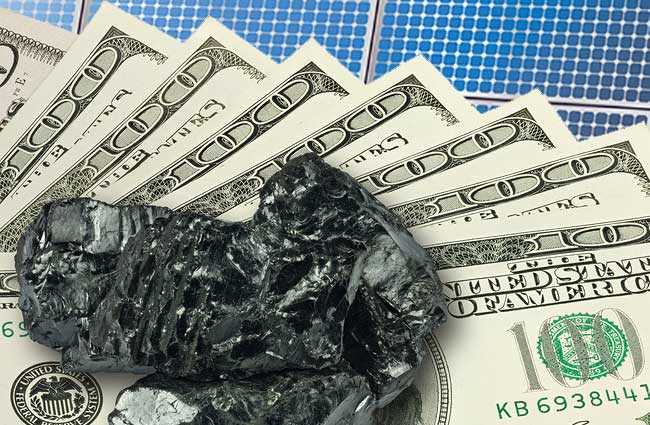Ever considered the consequences of mega coal companies investing in solar power?
This week news came through of the world’s largest coal miner — Coal India Limited — pumping a cool $1.2 billion into the development of 1,000MW solar plants in the country.
Under huge pressure to source their energy in a more environmentally friendly way, the public-owned company is helping carry out the new Indian government’s effort to promote domestic renewable energy. Researching sites to establish the solar plants throughout the various states has already begun.
However this news — major though it was — paled into insignificance compared to reports this week that the philanthropic arm of the Rockefeller family is leading an international move away from fossil fuels and towards clean energy.
The consequences are potentially enormous for fossil fuels. The Rockefeller’s divestment signals that clean energy is not just better for our health and the environment. but adds weight to the hard-headed business sense behind coal companies investing in solar power.
The Rockefellers, the famous name behind Standard Oil, issued a statement saying The Brothers Fund was “…committing to a two-step process to address its desire to divest from investments in fossil fuels.”
As one of the United States most successful and canny investors, they have long bought into fossil fuel ventures as a way of making huge profits. Preferring to stay out of the public limelight, the Rockefeller family have gained a mighty reputation for recognising a good earner when it stares them in the face.
However this news proves that the Rockefellers do worry about that triple bottom line and (a) understand the public clamour for investment in clean energy and (b) can see that renewables now challenge fossil fuels as a viable energy source.
So back to our question about the consequences of coal companies investing in solar power. If major business and government players are looking to renewables as a financially viable future energy option as well as one that is environmentally friendly, how long before they completely bail out of coal? Is news like the Indian government investment and the Rockefellers’ drive towards a clean energy future a sign of: “If you can’t beat ‘em, join ‘em”?


 RSS - Posts
RSS - Posts



And I bet ya, that SOLAR POWER WILL FALL ON ITS FAT OBESE OVER RATED CLIMATE BOOMING THEORY ASS ! As, I’m already seeing MAJOR PROBLEMS IN THE TOP END OF AUSTRALIA NOW. Yeah, they are breaking down more rapidly than what their famous claims that had been made to suck in the foolish,and gullible people to outlay much money on these systems ! And, I suggest to you, ” Have a look at how many solar installing companies have disappeared in recent years ? ” and how many cowboys fly by nighters have suddenly just gone AWOL now,too. And I’m still being threatened by the CEC dipshits for trying to repair these units today…
Nah, tell the bloody TRUTH AS IT SHOULD BE TOLD
Hi derbyiters,
How much would you like to wager?
Get up on the wrong side of bed this morning, derbyiters?
My parents were one of the earliest adopters of the government’s solar schemes, when their 5KW system cost around $60k If I recall correctly. The panels are still going strong, paying out around $5,000 per year.
That’s five grand from the utility into my old’s pockets, for the excess power that is supplied to the grid. On those years where the utility isn’t being delinquent in paying it’s bills on time, which it usually is.
Has there been any writing or research into the national security benefits of distributed solar? Widescale adoption of solar + storage, with a low-capacity smartgrid which can automatically react to any damage to the system would basically be immune to wide-scale disruption from natural disasters, terrorism or limited bombing and missile strikes. Compared to the fragility of our current system, a distributed grid would be a gamechanger from the perspective of safeguarding the nation. If developed over the course of a decade it would cost only a fraction of the amount that we are spending on fighter jets.
You would think that argument would play well in conservative circles, if they really cared about national security as much as they claim to.
If they were really smart, they would have already done this. India’s increasing consumption of coal is resulting in expensive imports, when their local coal production is massive. No excuse for major power generators to avoid solar substitution because it works best in peak load times, and can take pressure of high tension distribution grids.
Good point thanks Colin, though the new Indian government does seem bent on supporting the renewables sector. And it’s a conservative administration!
Thats the best news I’ve seen for a long time!
Agree wholeheartedly, thanks for the comment Ann.
Honest Injun?
I don’t know how to post this elsewhere, but thought the numbers were interesting:-
http://asia.nikkei.com/Business/Trends/Japan-utilities-finding-solar-power-too-hot-to-handle